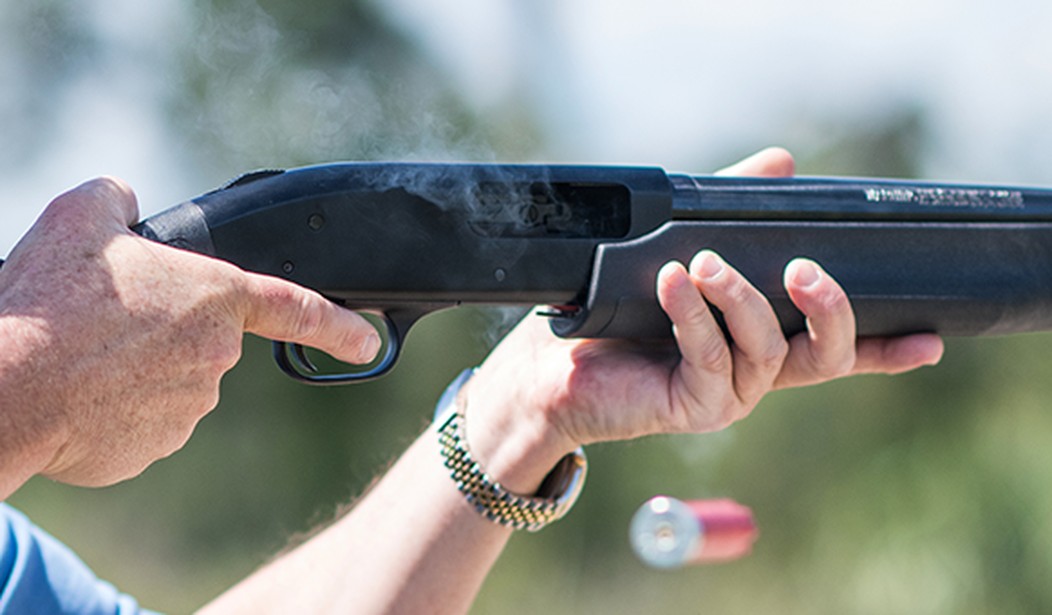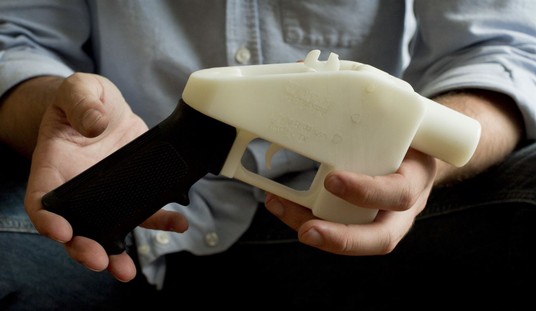Smart guns are a contentious issue in the United States. While, in and of itself, there’s nothing wrong with companies trying to develop smart weapons, much of the goodwill for such endeavors went out the window when New Jersey passed a law that would require only smart guns to be sold once the technology became viable.
While the state has since repealed that law, instead of replacing it with one that would require all dealers to include at least one model of smart gun in their inventory, the damage was done. There’s no interest by gun manufacturers to look into smart guns.
However, there may be a customer who could drive that demand all on their own. That’s the military.
A carbine that can call in an airstrike. A computer-aided scope on a machine gun that can turn just about anyone into a marksman.Even firearms that measure and record every movement, from the angle of the barrel to the precise moment of each shot fired, which could provide law enforcement with a digital record of police shootings.
The application of information technology to firearms has long been resisted in the United States by gun owners and law-enforcement officials who worry they could be hacked, fail at the wrong moment, or invite government control.
But with the U.S. Army soliciting bids for high-tech battlefield solutions to create the soldier’s rifle of the future, those concerns may quickly become irrelevant. The Army is moving forward regardless.
One company seeking an Army contract is working on an operating system that could be embedded into the gun, which could have law-enforcement and civilian applications that may reshape the U.S. debate about gun safety.
“You could accomplish some of the functionality by duct-taping an iPhone to your gun. However what we offer is the world’s first truly embedded operating system,” said Melvic Smith, 41, principal owner of Dimensional Weapons Systems, which bills itself as the first patented blockchain-based firearms company.
That system could eventually add any number of applications, Smith said, including “smart gun” technology that would only allow the weapon to be fired by a designated shooter’s hand.
That would certainly change the landscape, that’s for sure. After all, military contracts are quite lucrative for small arms dealers. It wouldn’t be difficult to imagine any of the big gun companies working to develop weapons with these capabilities to win those contracts.
And, if they lose, well…there’s still the civilian market, right?
Only, I’m not so sure.
For one thing, the Army solicits bids on a fairly regular basis only to see them go nowhere. That includes pushing for research and development on new technologies, spending millions on them, only to cancel them before they’re ever ready for deployment. Just google “land warrior system” some time for an example.
However, Uncle Sam is also the one entity that could probably drive this technology forward even without civilian interest in smart guns.
The real question becomes, would there be a demand for this in the civilian market? To be sure, a military contract for such tech would have to address many of the concerns private citizens have about smart guns. However, would it be enough? After all, I look at the issue my wife has just getting her smartphone to ignore calls from unknown numbers and I can’t be comfortable placing similar technology in her hands in a matter of life or death.
It’s entirely possible that this won’t go anywhere. These “smart guns” might end up creating no impact on the civilian market.
Here’s hoping.








Join the conversation as a VIP Member